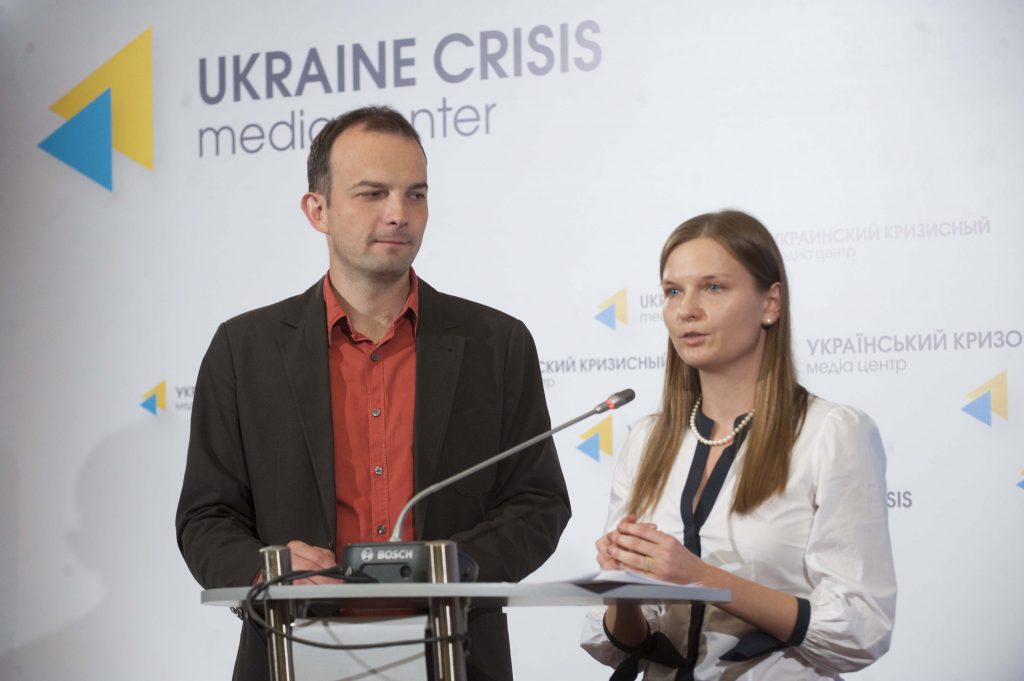Kyiv, 22 August 2014 – “True reforms in Ukraine will not happen without lustration. Lustration has to be an effective and transparent process conducted with involvement of international observers. It is planned to establish special lustration tribunal. Public lustration committee and Ukrainian MPs will take into account recommendations of the international experts drafted by “Open Dialogue” Foundation. Such statement was made by Lyudmyla Kozlovska, President of the “Open Dialogue” International Foundation at a briefing in Ukraine Crisis Media Center.
According to Mrs. Kozlovska since last February when political changes occurred the Foundation has been supporting civil initiatives for decentralization of power and general lustration of state human resources. “The Foundation makes efforts to meet the expectations of Ukrainian and international society, they consider lustration a compulsory precondition to enable effective implementation of reforms in Ukraine,” noted President of the “Open Dialogue” Foundation.
At the briefing Lyudmyla Kozlovska also noted that the Foundation closely cooperates with the Civic Lustration Committee headed by Yegor Sobolev on the issues of lustration, under lustration thorough checks on state officials are implied. Lustration Committee and MPs will use in law-making results of experts’ analytical work – conclusion and recommendations drafted in the framework of such cooperation.
Yegor Sobolev, Head of the Civic Lustration committee of Ukraine mentioned most illustrative cases demonstrating the need to hold immediate lustration especially when facing the treat to the state territorial integrity and sovereignty:
– facts of stealing budget money (corruption practices) that remain at the disposal of law enforcement agencies and are directed to support the country’s defense system, in particular the units taking part in the anti-terrorist operation as well as facts of military sabotage on the part of civil servants and military commanders (probability of infiltration of foreign special services is high);
– possible violation of embargo on military cooperation of Ukraine with the Russian Federation as to the defense enterprises that continue implementing contracts on weaponry supply to the Russian Federation;
– continued cooperation between the Office of the Prosecutor’s General of Ukraine with the Russian Federation, Republic of Kazakhstan and other authoritarian CIS countries on persecution of political opponents, independent journalists and civil activists forced to immigrate to Ukraine and EU states with the use of Interpol mechanisms, international search and politically motivated extradition requests;
– widespread use of immunity by many Ukrainian MPs as a way to avoid criminal and administrative charges (of corrupt nature in particular) etc.




